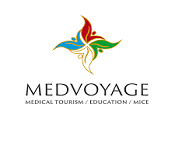We welcome all the Participants from all around the globe to be a part of "World Congress on Control & Prevention of HIV/AIDS & STDs - STIs " scheduled on December 15-16, 2021 at Abu Dhabi, UAE. The 2021 edition of the summit will move forward with the theme “Aiming for an HIV Free Society". HIV 2021 conference gathers noted Eminent Scientists/Research Professors, Junior's/Senior's analysers, Students, Doctors also researchers from World Health Societies & Associations and Medical Universities under one roof where networking and world partnering happens for the acceleration of future research.
World congress on Control & Prevention of HIV/AIDS, STDs - STIs is composed of many intriguing educational programs along with multiple panels, workshops, affinity cluster lunches, paper displays, and scientific sessions by professionals. Everybody being a part of this conference gets certification for his/her participation and a platform to reconstruct client base. We arrange to offer all delegates and great professors with all potential basic amenities and for attendees a source of information concerning all the upcoming technologies lined up.
Session 12: Progress for HIV Vaccine
Importance and Scope:
Theme of the conference “Aiming for a HIV Free Society” conveys the essential notion that we tend to showcase to the planet. HIV 2021 prioritizes the high quality researches and technologies used for human health, welfare and convenience. Folks from each genre i.e. the extremely classified professionals, scientists, researchers and young innovators have an excellent deal during this as they will be having an opportunity for diversification and world communication. We tend to believe HIV 2020 can start up as a seminar study and a platform jam-packed with public awareness.
Business worth of HIV:
In June 1981, scientists reported the first clinical evidence of a disease known as acquired immunodeficiency syndrome, or AIDS. Its cause, the human immunodeficiency virus (HIV), was acknowledged in 1983. Since the start of the epidemic in 1981, around 75 million have become infected with HIV and around 32 million people have died of AIDS-related illnesses. In 2018, there were 37.9 million people living with HIV. New HIV infections have fallen by 16% since 2010 (by 41% among children) and AIDS-related deaths have fallen by 55% since the peak in 2004. The United Nation family has been in the forefront of this improvement. Ending AIDS by 2030 is an integral part of the Sustainable Development Goals (SDGs), which were unanimously adopted by United Nations Member States in 2015. HIV Treatment Access: in 2018, 23.3 million folks with HIV (62%) were accessing antiretroviral medical care (ART) globally, a rise of one.6 million since 2017 and up from eight million in 2010. Mother-to-Child Transmission: In 2018, ninety two of pregnant ladies with HIV received ART to stop transmission HIV to their babies throughout physiological state and childbearing and to shield their own health. This is often compared to forty ninth in 2010. AIDS-related Deaths: AIDS-related deaths are reduced by over fifty fifth since the height in 2004. In 2018, around 770,000 folk sided from AIDS-related diseases worldwide, compared to one.2 million in a pair of010 and one.7 million in 2004. Regional Impact: the overwhelming majority of individuals with HIV are in low- and middle-income countries. In 2018, there have been twenty.6 million folks with HIV (57%) in Japanese and southern continent, 5.0 million (13%) in western and Central African Republic, 5.9 million (16%) in Asia and therefore the Pacific, and 2.2 million (6%) in Western and Central Europe and North America
Funding for HIV:
• To finish AIDS as a public health threat by 2030, UNAIDS estimates that US$26.2 billion are going to be needed for the world HIV response in two020 alone. This implies the planet should increase the number of resources out there for HIV by US$1.5 billion every year between 2016 and 2020, a scenario that's wanting more and more unlikely.
• In recent years, high-income countries have reduced funding for the HIV response in low- and middle-income countries, with a seven-membered decrease according between 2015 and 2016. Philanthropic donations, on the opposite hand, have up for the past 3 consecutive years.
Universities related to HIV/AIDS Worldwide:
USA:
- Augusta University
- Wayne State University
- Penn University
- University of Maryland
- Drexel University
- University Of Miami
- University of Georgia
- Harvard University
- Washington University
- University of Illinois
- University of Minnesota
- University of Charleston
- West Virginia University
Europe:
- University of Cambridge
- University of Oxford
- University of Copenhagen
- University College London
- Swiss Federal Institute of Technology Zurich
- Imperial College London
- University of Zurich
- Karolinska Institute
- University of Manchester
- University of Munich
- University of Edinburgh
- Pierre and Marie Curie University
- Catholic University of Leuven
- Heidelberg University
- University of Helsinki
Asia Pacific:
- Osaka University
- University of Tokyo
- National University of Singapore
- Kyoto University
- Mahidol University
- Tel Aviv University
- University of Hong Kong
- Keio University
- Hebrew University of Jerusalem
- Seoul National University
- National Taiwan University
- Sun Yat-sen University
- Fudan University
- Zhejiang University
- Peking University
Middle East:
- Alexandria University
- Cairo University
- American University of Kuwait
- The Lebanese American University (LAU)
- Weill Cornell Medical College in Qatar
- Paris-Sorbonne University Abu Dhabi
- Mohammed bin Rashid University of Medicine and Health Sciences
- Hebrew University
- King Saud bin Abdulaziz University for Health Sciences
- King Saud University
- Gulf Medical University
- Sana'a University
HIV Related Association & Societies:
USA:
- American Academy of HIV Medicine
- American Sexual Health Association
- Association of Nurses in AIDS Care
- Association for Professionals in Infection Control and Epidemiology
- International AIDS Society – USA
- International AIDS Society
- Infectious Diseases Society of America
- British HIV Association
- Australasian Society for HIV Medicine
- HIV Medicine Association
- International Association of Physicians in AIDS Care
- National Medical Association
- HIV Medicine Association
Europe:
- The European AIDS Clinical Society
- Aids Hilfe Wien Austria
- EATG (European AIDS Treatment Group) Belgium
- Czech AIDS Help Society Czech Republic
- AIDS Fondnet Denmark
- Deutche AIDS-Hilfe / AIDS Action Europe Germany
- Global Network of People Living with HIV Netherlands
- ARAS - Romanian Association against AIDS Romania
- Alliance Global Ukraine
- European AIDS Treatment Group
- HIV Pharmacy Association
Asia Pacific:
- CARAM Asia
- National AIDS Programme
- National Center for HIV/AIDS, Dermatology and STDs
- AIDS Concern
- Hong Kong AIDS Foundation
- The Society for AIDS Care
- HIV Medicine Association of India
- AIDS Clinical Center
- Korean HIV/AIDS Prevention and Support Center
- Taiwan Tongzhi Hotline Association
Middle East:
- Egyptian AIDS Society
- Egyptian Network of NGOs fighting AIDS
- AIDS Research Center of Iran
- HATAM - HIV/AIDS Treatment and Research Center
- Pozitif Yasam Dernegi (Positive Living Association)
- Saudi Charity Association for AIDS Patients
- National AIDS Programme
- Israel AIDS task force
- National HIV/AIDS program
Funding bodies:
- Centres for Disease Control (CDC)
- National Institute of Allergy and Infectious Diseases (NIAID)
- National Institute of Child Health and Human Development (NICHD)
- NIH Office of AIDS Research (OAR)
- Irish Aid
- Elton john AIDS foundation
- Mac AIDS fund
- The global fund
The Road Ahead:
HIV market can see modest growth to $22.5 billion by 2025. The human immunological disorder virus (HIV) market across the 9 major countries of the USA, France, Germany, Italy, Spain, the UK, Japan, Brazil, and China, is about to grow from $16.3 billion in 2015 to $22.5 billion by 2025, representing a compound annual rate of simply over three-dimensional, in step with Global Data, a recognized leader in providing business info and analytics.
Conclusion:
HIV/AIDS 2021 through this learning experience dreams for a society where HIV infections are rare and when they do follow, all person, irrespective of age, gender, race/ethnicity, sexual orientation, gender identity or socio-economic circumstance, will have unrestricted access to high quality, life-extending care, free from disgrace and discrimination.
References:
https://www.who.int/gho/hiv/en/
https://www.avert.org/professionals/hiv-around-world/global-response/funding
Young Scientist Awards at Control & Prevention of HIV/AIDS & STDs-STIs 2021 for the best researches in HIV/AIDS.
Meetings International is announcing Young Scientist Awards through Control & Prevention of HIV/AIDS & STDs-STIs Conference which is scheduled at Abu Dhabi, UAE during December 15-16, 2021. This HIV-AIDS-2021 conference focuses on Current Emerging Practices in Clinical and Experimental HIV-AIDS.
HIV-AIDS- 2021 and upcoming conferences will recognise participants who have significantly added value to the scientific community of Food science and provide them outstanding Young Scientist Awards. The Young Scientist Award will provide a strong professional development opportunity for young researches by meeting experts to exchange and share their experiences at our international conferences.
HIV-AIDS-2021 focuses mainly on Advancements in HIV Infection, Treatment, and Advancements in HIV Drugs and many more. HIV-AIDS- 2021 conference operating committee is providing a platform for all the budding young researchers, young investigators, post-graduate/Master students, PhD. students and trainees to showcase their research and innovation.
Eligibility:
Young Scientists, faculty members, post-doctoral fellows, PhD scholars and bright Final Year MSc and M.Phil. Candidates. Persons from Scientific Industry can also participate.
Benefits: The Young Scientist Feature is a platform to promote young researchers in their respective area by giving them a chance to present their achievements and future perspectives.
Acknowledgement as YRF Awardee
Promotion on the conference website, Young Researcher Awards and certificates



